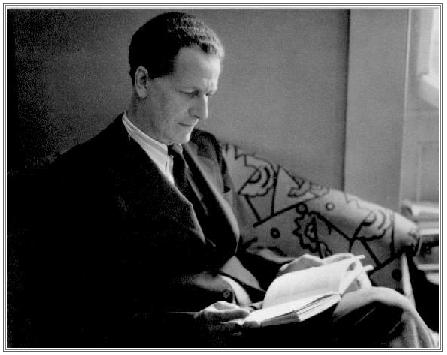Kinnara Ensemble makes impressive showing in works for double choir

Excerpts from Frank Martin’s Mass for Double Choir were performed by the Kinnara Ensemble Sunday at Christ Church.
Sundays may be a bare spot on the calendars of most major performing institutions, but for smaller groups they offer a prime opportunity. This past Sunday, led by music director J. D. Burnett, the Kinnara Ensemble gave an impressive program of works for double choir at Christ Church on Park Avenue, showcasing their polish and tightness of ensemble in their New York Debut.
Their first item for the thirty-two voice choir was Giovanni Gabrieli’s Plaudite omnis terra. The singers displayed a bright, beaming tone, and were admirably tight in their ensemble, achieving a seamless dialogue among the different sections. Their tuning was a little suspect, as it would be elsewhere on the program, one of very few qualms about an otherwise impressive performance.
The other quibble has to do with quality of sound: Kinnara has the piercing clarity that choir directors covet, but it is indeed possible to have too much of a good thing. The sopranos pushed for volume, and sang with a straight tone that gave them a hard edge and often swallowed up the richness of the basses. This was most apparent in Brahms’s Fest- und Gedenksprüche, where a gentler approach would have been more suited to the tenderness of the writing.
On the whole, though, Kinnara presented an attractive sonority and sang with commitment. The tidal sighing of Trond Kverno’s Ave maris stella was gorgeous, and there was a crisp energy throughout Giles Swayne’s pixelated Magnificat, as the high voices beamed out a rapid succession of disjunct notes, each landing like a point of light.
Two selections reveled unabashedly in luxurious sound: first, William Harris’s “Faire is the Heaven,” lush, verdant, and quintessentially English in its breezy sentiment. More open in composition but still sonically rich was Randall Thompson’s “Ye shall have a song.”
The most convincing item on the program both as a composition and in its performance was Frank Martin’s Mass for Double Choir, from which Kinnara offered a set of excerpts. The initial statement of the Kyrie was simplicity itself, almost resembling the Gregorian Kyrie plainchant. Even as it developed there was a certain economy of composition, relying on graceful performance rather than intricate writing to make its argument.
The Gloria offered some of the most fascinating writing of the afternoon; where most of the other compositions had explored the possibilities of setting two choirs against each other in flowing counterpoint, Martin here worked in colors, building complex textures out of the many voices available. The result was haunting, a dark amber glow. Sighs followed in the Sanctus, growing ultimately to beaming light.
“How do you end a program for double choir?” asked Burnett before the final offering. His answer was a departure from the rest of the concert, but suitably jaunty, a clever arrangement of the spiritual “Ezekiel” by Stacey Gibbs.
Tea Sets DoMiTea Amber Jewelry Sleeping Bag






